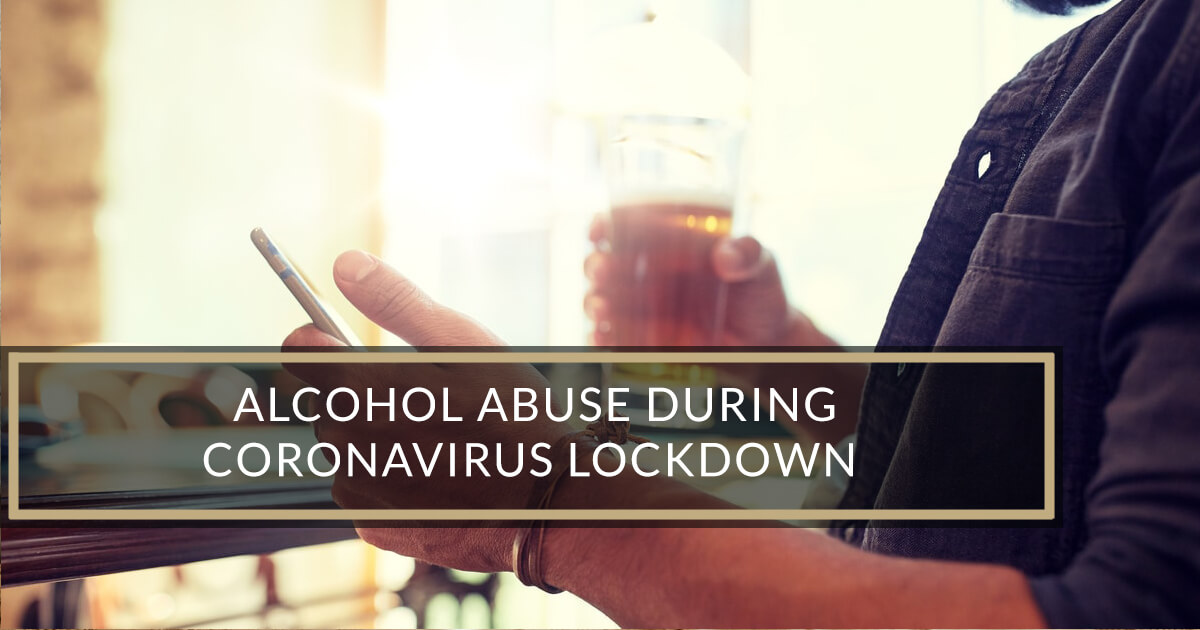The novel coronavirus pandemic has had many serious health consequences above and beyond its effects. As cases rise and deaths mount, even those not directly impacted by COVID-19 are suffering. Some of the effects are physical: when people can’t access outdoor spaces or visit the gym, there will naturally impact their health. Mental health is affected too. Anxiety, uncertainty, isolation — all of these take a heavy toll on many people. Those who are vulnerable to substance use issues are struggling especially hard. Alcohol use and abuse has risen significantly during the lockdown, as if alcohol and the coronavirus pandemic were inextricably linked.
When public health officials first began telling people to stay at home March, alcohol sales rose dramatically. By late March, sales had skyrocketed by 55 percent compared to March 2019. At least some proportion of this was indeed due to stockpiling, but the abuse was also on the cards.
As well as sales from stores, alcohol has become an increasingly popular offering for eateries that can no longer serve food in the usual way. To attract customers for their takeout services, restaurants have been offering alcohol among the other options. Wine, beer, cocktails, and other alcoholic drinks are popular menu items for pickup and delivery.
The pandemic itself, the economic problems that it’s brought for so many, and the pressures of lockdown have all induced significant stresses. With alcohol readily available, it’s unsurprising that some people are struggling with problem drinking. People who had perhaps been free from alcohol issues before the outbreak have found themselves drinking more than they know is healthy for them. In contrast, those who were already problem drinkers have found that their existing problems have been exacerbated.
Other drugs have also been abused more than usual, including opiates and tranquilizers. Problems such as eating disorders have surfaced for some people, perhaps for the first time. However, the easy availability of alcohol has made it one of the most problematic substances during the pandemic. While drug dealers may be sheltering in place and doctors are carefully monitoring their patient’s medication, the local restaurant may be only too happy to drop off a pitcher of Long Island Iced Tea.
It’s not all bad news, fortunately. For those who find themselves drinking more than they should, there are solutions. Social connections and support networks are of paramount importance in alleviating the stress and loneliness that can easily lead to alcohol abuse. Phone chats, Zoom meetings, virtual hang-outs, online classes, and web-based therapy can significantly help. Connections of this sort can reduce drinking indirectly by lowering stress levels and providing valuable moral support. They can also have a more direct effect, helping to provide distractions other than alcohol. Virtual clubs and game nights over Zoom can lift people’s spirits, making them less likely to take than first drink.
A more professional approach may be required for those who’ve tried to manage their condition through these informal means and still found themselves struggling. Structured sessions with a virtual therapist can be highly beneficial to those battling substance abuse issues. If coping with alcohol-related problems at home is proving impossible, residential detox programs are available. These allow patients to take refuge in a safe, drug-free environment where coronavirus risks can be managed very effectively. Recognizing the signs of alcohol abuse and entering alcohol abuse treatment can prevent serious health problems.
The Dunes offers luxury rehabilitation facilities for people fighting substance abuse conditions for those who require specialist support. Giving patients the comfortable, compassionate, and nurturing environment they need to heal; The Dunes helps people leave their struggles with alcohol behind.








